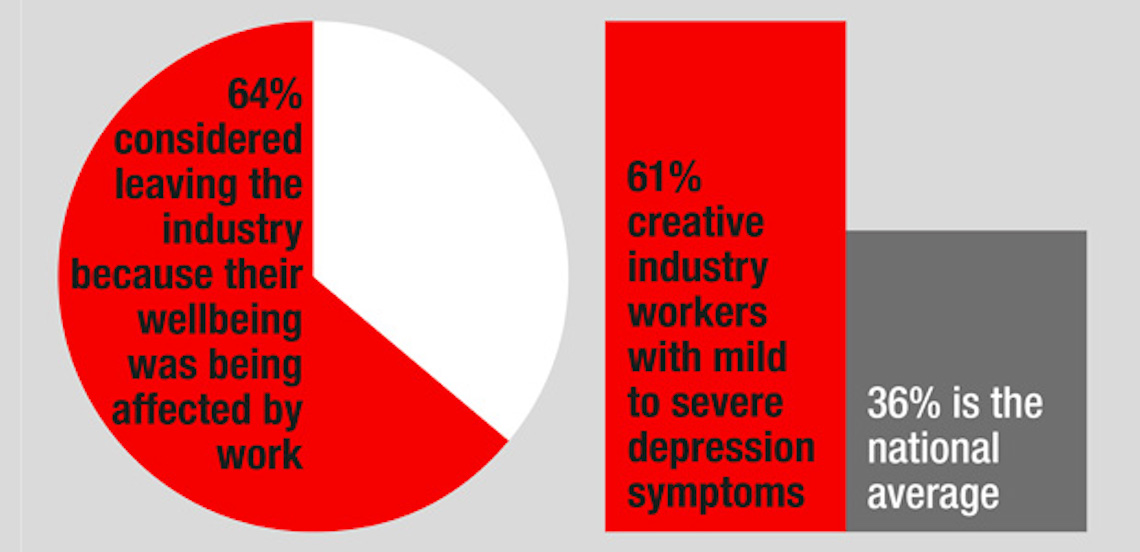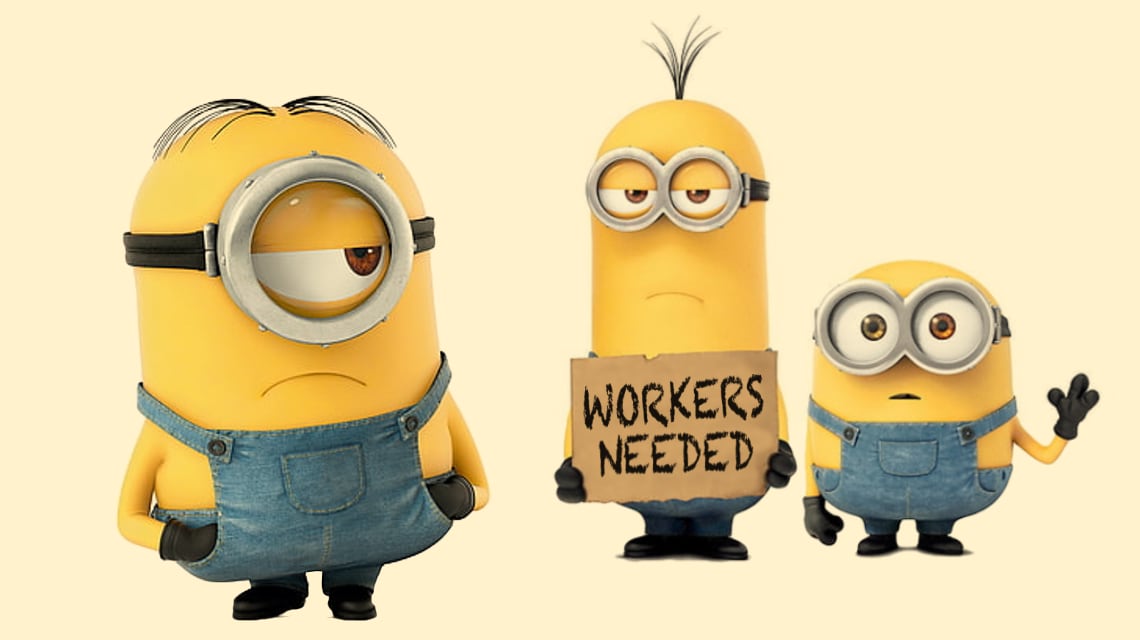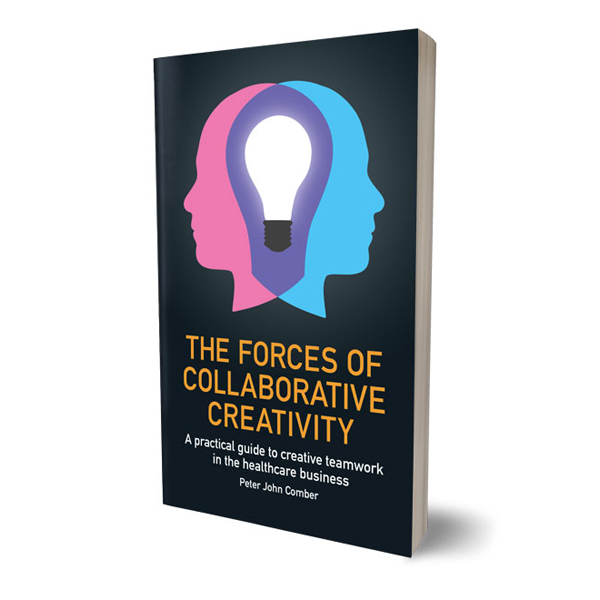The Certified Crazy Ones.
The advertising industry urgently needs an international professional association that promotes minimum standards of labour.
Does the advertising industry attract people who have mental health issues or is the working environment conducive to developing mental health issues? In my experience, it’s both but over the last couple of decades, the increasing toxicity of the environment has exacerbated the problem.
A survey of 576 advertising and media industry employees, conducted last year by NABS and Mind in the UK, reported, among other sombre statistics, that 26% have a long term mental health condition and 33% believe their senior leadership team doesn’t encourage positive workplace wellbeing. 64% of respondents had considered leaving the industry because their wellbeing was being affected by their work. 36% said their mental health over the past 12 months had been either poor or very poor and a whopping 60% stated work had a negative impact on their wellbeing in the past 12 months.
Meanwhile in Australia, Never Not Creative, UnLtd and Everymind conducted a study into the mental health and wellbeing of the media, marketing and creative industries that involved 1,800 participants. They found that while the national average prevalence for mild to severe symptoms of depression is 36%, in their respondents it was 56%. Specifically, 61% of creative industry workers showed symptoms of depression compared to 53% in marketing and 46% in media.
These statistics are alarming. I believe they are the inevitable symptoms of a severe crisis of identity and worth in the industry. A crisis caused by trends that have played out over the last couple of decades in a vicious cycle:
Last week, P&G Vice Chairman-Chief Financial Officer Jon Moeller said Secret, a deodorant brand, “no longer has an agency of record. The brand team has become its own agency, bringing in nearly all advertising creation and media planning.” Work is “being created in as little as a tenth of the cost,” Moeller continued. “The time from idea to execution has significantly reduced, producing content in under a month.” Brands taking work in-house is nothing new but it is an accelerating trend that poses hard questions for the future of agencies and the people who work in them. Traditionally advertising has been about learning-on-the-job. But if the workforce is depleted of experienced professionals and predominantly composed of sleep-deprived depression sufferers, you have to wonder what interns and junior staff are learning today. Then there is the question of the quality of aspiring workers that the industry is able to attract. These, I believe, are the fundamental problems. Better trained and more knowledgable people are the key to improving the industry. However, there is one last trend that works against this, the shift from stable employment to various forms of gig-working. These forms of labour leave many people economically vulnerable and with significantly reduced opportunities to learn from experienced colleagues in an organised environment.
These issues need to be addressed urgently and I think it is time for the industry to unite its efforts in a pragmatic, international professional association.
PADI the Professional Association of Diving Instructors is an example from a different field. Divers the world over share basic safety knowledge and standards. Professional divers’ skills are certified by a trusted system that allows thousands of businesses and professionals in the diving world to compete individually on a safe and ethical playing field. Advertising needs something like it.
I propose that the charter of the professional association would specify four functions:
If you don’t see any value in the above, fair enough. If you do think these are valid points it’s time to stop just nodding your head and start doing something. The initial momentum will need to come from a united effort by WPP, Omnicom, Publicis, Interpublic and Dentsu who, I think, should aim to get the initiative endorsed by ILO. The International Labour Organisation is a UN agency that celebrates it’s centenary this year. ILO was created at the end of WWI as part of the Treaty of Versailles, “to reflect the belief that universal and lasting peace can be accomplished only if it is based on social justice.”
Over ten decades ILO has accomplished much to improve labour conditions, partly thanks to its tripartite organisation that brings together representatives of governments, employers and workers in its executive bodies.
The challenges to the global labour market over the next decades will be extreme. The advertising industry has already been touched by the first manifestations of these challenges. A strong and farsighted response that establishes minimum standards of quality in work relations is urgently needed to avoid a catastrophic implosion of talent and credibility. The budget required to launch a professional organisation is inferior to that which the five holding companies, mentioned earlier, will spend at Cannes this week. The cost of not creating it is incalculable.





